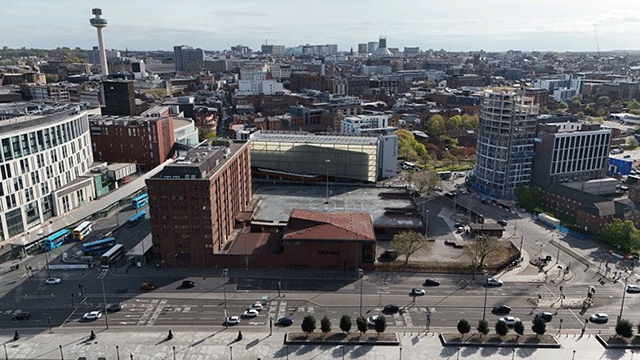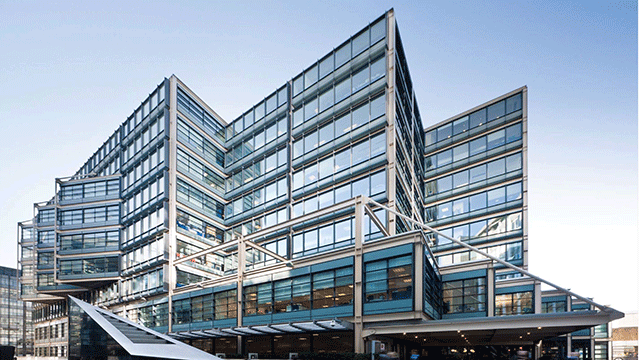Favourable occupier markets helped SEGRO post a positive set of results, with new headline rent commitments of £88m during the year ended 31 December.
The firm reported an average uplift in rent reviews of 31% and the securing of some £27m of income in prelet agreements.
Over the year it saw net rental income increase by 12.5% to £587m, driven by development completions and strong like-for-like rental growth of 6.5%.
Adjusted pretax profit was £409m, up by 6%.
Chief executive David Sleath said: “SEGRO delivered a strong operating performance in 2023, despite the weaker macroeconomic backdrop. Significant rental uplifts on the standing portfolio and our profitable development programme have driven further growth in both earnings and dividends.
“Last year, tighter monetary conditions resulted in a modest, yield-driven valuation decline; however, we are reassured by continued rental growth across our markets. Market expectations for lower interest rates, if sustained, provide a positive backdrop for a recovery of investment market sentiment as the year progresses.
He added: “In the next three years we expect to increase our passing rents by more than 50% through capturing embedded reversion, leasing vacant units and developing new space. Looking beyond this our exceptional land bank, continuing occupier demand and constrained supply, offer significant additional opportunities for profitable growth.”
SEGRO said it had a further £50m of potential new headline rent from around 6m sq ft of development completions.
The REIT added that its landbank had the potential to add more than £390m of rental income. SEGRO invested £931m – down from £1.3bn in 2022 – in growing its development and landbank portfolio in 2023.
“For users of industrial and logistics space, location is critical to the success of their operations,” said Sleath. “They are increasingly seeking modern, flexible and highly sustainable space to improve operational efficiency and to attract talent in a competitive labour market. Beyond the typical users such as manufacturers, retailers and third-party logistics operators, modern warehouse space is used by data centres, digital content producers, healthcare and life sciences, as well as a huge array of other businesses that provide essential goods and services to our towns and cities.
“Our buildings are essential to support the growth, productivity and competitiveness of our economies,” he added.
The group said take-up was now in line with or higher than pre-pandemic levels across its markets, which was giving it confidence in the outlook for continued rental growth.
Some £137m of SEGRO’s future income growth is underpinned by rent reversions within its existing portfolio, said the REIT, reflecting around 20% of its current rent roll.
Looking to the future, Sleath said SEGRO was optimistic about prospects for rental growth.
“If market expectations that central bank rates have peaked are sustained, this should provide a supportive backdrop for a recovery of investment market sentiment during 2024,” he said. “The fundamentals for our sector remain strong, with occupier demand supported by structural drivers and limited supply, which leaves us optimistic about the prospects for further rental value growth.
He added: “This should result in investment markets in the industrial and logistics sector recovering more quickly than wider real estate assets. In addition, we expect investors to remain selective about where and in what they invest, which, along with our active approach to asset management, should lead to our high-quality, modern and sustainable portfolio outperforming the wider industrial and logistics market on a long-run basis.”
The value of SEGRO’s portfolio dipped by 4% over the year under review to just over £17.7bn.
Send feedback to Samantha McClary
Follow Estates Gazette











